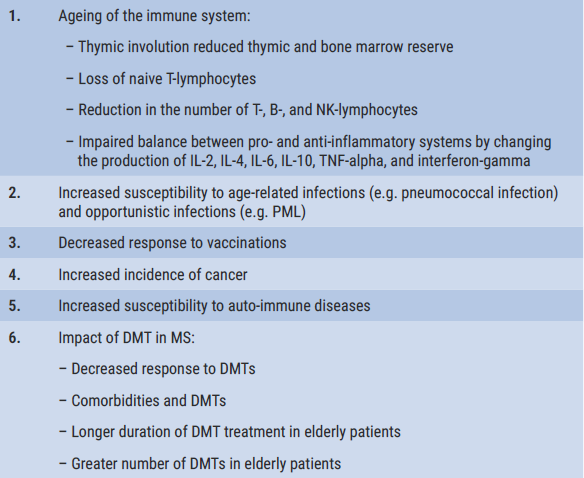https://doi.org/10.55788/403fa02c
Updated pregnancy outcomes in MS patients receiving ocrelizumab were presented by Prof. Celia Oreja-Guevara (University Hospital San Carlos, Spain) [1]. Included were 2,020 cumulative MS pregnancies of women exposed to ocrelizumab before or during pregnancy from November 2008 up to 31 March 2022, which is an increase of 65% compared with the previous data cut-off in 2021. Additionally included were the outcomes of 61 infants of up to 1 year of age exposed to ocrelizumab in utero and/or during breastfeeding. Prof. Oreja-Guevara focused on the 1,498 prospectively reported cases.
From the 596 women (39.8%) with known pregnancy outcomes, 286 were exposed to ocrelizumab (of 147, exposure was unknown) (see Table). Most pregnancies (79.0%) resulted in live births; proportions were similar in the exposed and non-exposed groups. Prof. Oreja-Guevara expressly noted that results in the exposed and non-exposed groups, e.g. the percentage of preterm births, did not differ significantly. The percentage of elective termination of pregnancy was higher in the exposed (11.5%) versus the non-exposed group (3.7%). However, the overall cumulative proportion of elective abortions decreased: it was 15.7% in 2021. The percentage of spontaneous abortions was lower in the exposed group (8%) than in the non-exposed group (10.4%), which is still lower than the overall rate in Spain, which is around 15%.
Table: Pregnancy outcomes by ocrelizumab exposure [1]

Combining prospective and retrospective cases, of 809 children born alive, 10 (0.9%) had major congenital abnormalities, of which 8 were in the exposed group. Two of these had Down syndrome. There were 0 cases of major congenital abnormalities in the non-exposed group, but as Prof. Oreja-Guevara noted, in this group underreporting is always a problem in this type of study. Follow-up data of 1 year was present of only 61 newborns; these will be presented in more detail at the ECTRIMS meeting of 2023.
In conclusion, Prof. Oreja-Guevara noted 2 important tendencies: “We see more and more pregnancies, but there is not an increased risk of adverse pregnancy of infant outcomes with ocrelizumab in utero exposure compared with previous reports and epidemiological data. Most importantly: The proportion of patients undergoing elective abortion decreased over the previous year, probably because both patients and physicians are less afraid of adverse outcomes.”
- Oreja-Guevara C. Pregnancy and infant outcomes in women receiving ocrelizumab for the treatment of multiple sclerosis. Abstract O038, ECTRIMS 2022, Amsterdam, 26–28 October, the Netherlands.
Copyright ©2022 Medicom Medical Publishers
Posted on
Previous Article
« New safety data of anti-CD20 mAbs around pregnancy Next Article
Evidence-based consensus on pregnancy in NMOSD »
« New safety data of anti-CD20 mAbs around pregnancy Next Article
Evidence-based consensus on pregnancy in NMOSD »
Table of Contents: ECTRIMS 2022
Featured articles
Letter from the Editor
Diagnosis and Prediction of Disease Course
A case for including optic nerve lesions in the McDonald criteria
Cerebrospinal fluid kappa-free light chains for MS diagnosis
Early, non-disabling relapses increase disability accumulation
Physical impairment is present before perceived MS onset
Chronic active MS lesions respond poorly to anti-CD20 antibodies
Treatment: Trials & Strategies
Dimethyl fumarate reduces the risk of a first clinical event in RIS
How and when to make a timely switch to high-efficacy DMT
Comparing real-world effectiveness of DMTs
Study fails to show non-inferiority of rituximab to ocrelizumab
Autologous haematopoietic stem cell transplantation versus DMTs
Progressive MS
Stem cell transplantation not superior to natalizumab in progressive MS
Efficacy of DMTs fades away in secondary progressive MS
Smartphone tapping can help detect progressive MS
Paediatric MS
Early treatment with DMT effective in paediatric-onset MS
Fingolimod in paediatric MS: results of up to 6 years
Switching treatment after initial platform injectable DMT: real-world data
Pregnancy
Pregnancy and infant outcomes in women receiving ocrelizumab
New safety data of anti-CD20 mAbs around pregnancy
MS activity and pregnancy outcomes after long-term use of natalizumab
NMOSD
Ravulizumab significantly reduced relapses in AQP4+ NMOSD
NMOSD patients are cognitively impaired regardless of serostatus
Evidence-based consensus on pregnancy in NMOSD
COVID-19
COVID-19 and MS: lessons learned thus far
Ocrelizumab and fingolimod increase the risk of COVID-19 and of worse outcomes
Humoral and cellular immune responses after SARS-CoV-2 vaccination
Miscellaneous
Re-myelination strategies in MS still pose many unanswered questions
MS associated with a broader Epstein-Barr virus specific T-cell receptor repertoire
Cognitive rehab and mindfulness reduce cognitive complaints in MS
Related Articles

April 15, 2021
Do anti-CD20 DMTs cause worse COVID-19 outcomes in MS?

September 7, 2023
Immunosenescence and MS: relevance to immunopathogenesis and treatment
December 20, 2022
A case for including optic nerve lesions in the McDonald criteria
© 2024 Medicom Medical Publishers. All rights reserved. Terms and Conditions | Privacy Policy
HEAD OFFICE
Laarderhoogtweg 25
1101 EB Amsterdam
The Netherlands
T: +31 85 4012 560
E: publishers@medicom-publishers.com

